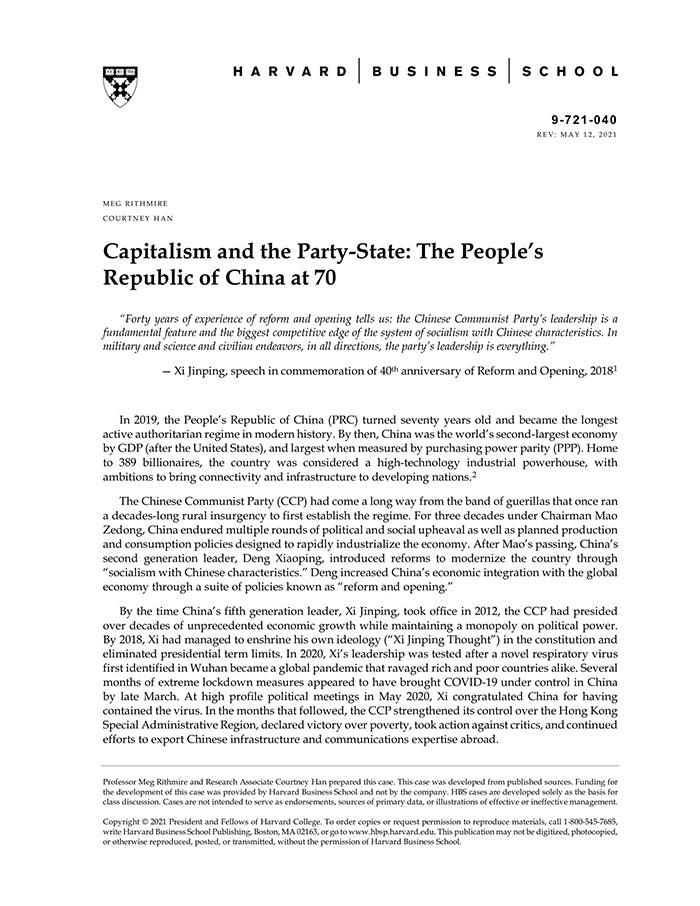Capitalism and the Party-State: The People's Republic of China at 70
受取状況を読み込めませんでした
In 2019, the People's Republic of China (PRC) turned seventy-years-old and became the longest active authoritarian regime in recent history. By then, China was the world's second largest economy by GDP (after the United States), and a high-technology industrial powerhouse, with ambitions to bring connectivity infrastructure to developing nations. By the time China's fifth generation leader Xi Jinping took office in 2012, the Chinese Communist Party had presided over decades of unprecedented economic growth while maintaining a monopoly on political power. By 2021, Xi showed no signs of choosing a successor or stepping down after the customary two five-year terms. Despite promising more and deeper market reforms, the PRC at 70 appeared to oversee an increasingly complex economy and society with a party-state expanding its presence into nearly every aspect of civilian life. The world sought to make sense of China's changes and especially the apparent resurgence of the party-state. What would China's conservative turn mean for its future and its role in the world?
【書誌情報】
ページ数:41ページ
サイズ:A4
商品番号:HBSP-721040
発行日:2021/3/3
登録日:2021/7/12


